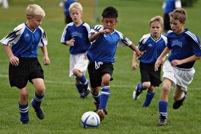A plural is a word that shows there is more than one of something. Usually, we make plurals by adding 's' to the end of a word. For example:
 one apple |
 two apples |
However, there are some nouns that can't be made plural. These are called noncount nouns. If a noun is noncount, that means you cannot put 'a' in front of it, or add '-s' to the end.
Noncount Nouns
Most noncount nouns are feelings, ideas, or things that you can't really count. For example, 'love' is a noncount noun. How can you count love??
Other noncount nouns are liquids, powders and gases. For example, 'water' is a noncount noun. It is impossible to 'count' water. If you have to measure it, it is noncount.
Some noncount words are categories, or things you can have types of. For example, 'food' and 'candy' are noncount, because they are categories.
Here are some common noncount nouns that you might come across.
 love |
 anger |
 flour |
 water |
 food food |
 clothing clothing |
 happiness happiness |
 soccer soccer |
 milk milk |
 wood wood |
Sometimes, these noncount words are confusing. Can't we count soccer? Can't we count milk?
The answer is, sort of! Instead of counting 'soccers,' we can count 'soccer balls.'
Sometimes, we can turn noncount nouns into count nouns by adding units of measurement or using a different word.
| Noncount | milk | sugar | money | paper | water | dust |
| Count | glasses of milk | cups of sugar | dollars | pieces of paper | drops of water | balls of dust |